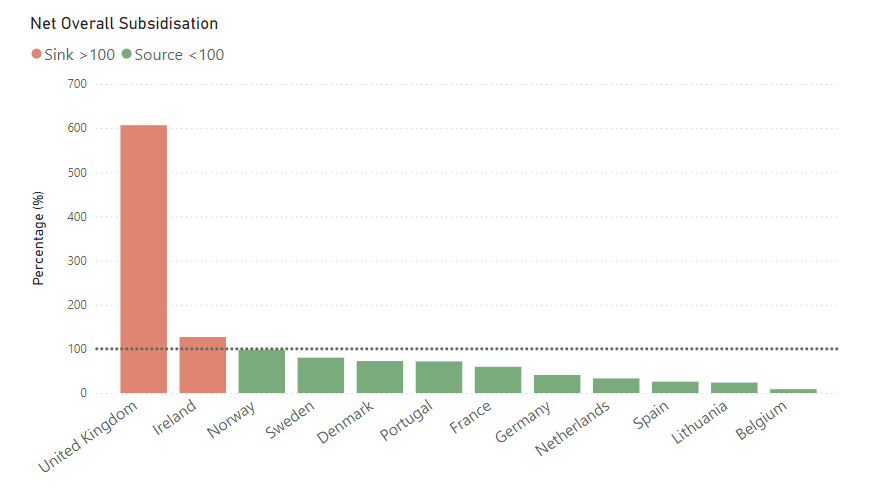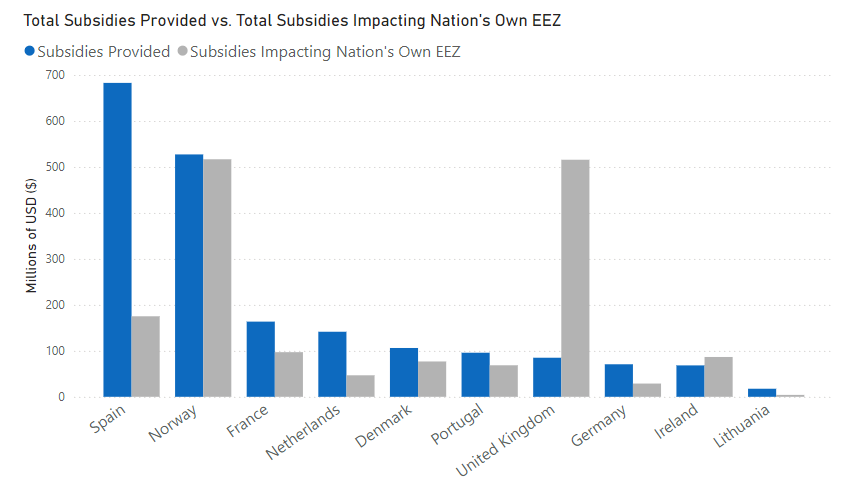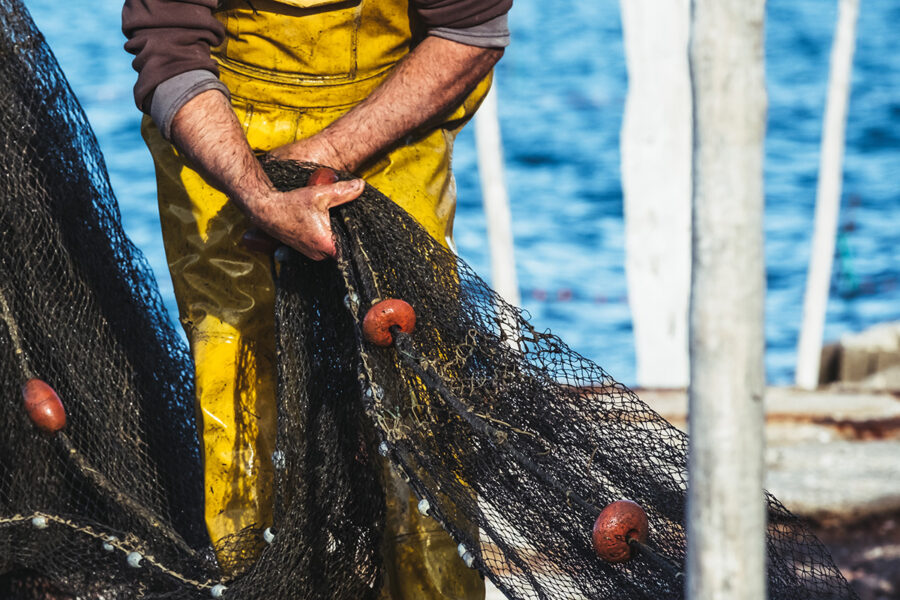Foreign vessels fishing in UK EEZ receive over 500% more financial support to fish in UK waters than UK fishermen do
By Andy Read, Editor, Fishing News
A paper published in the scientific journal Marine Policy, with a wide group of authors, some attached to anti-fishing NGOs, shows starkly how bad a deal UK fishermen have in Europe. The UK EEZ is a key fishing ground for fleets from the EU and Norway, which are provided with huge amounts of government support to fish in British and, to a lesser extent, Irish waters.
Ireland is the only country remaining within the EU that is a net ‘subsidy sink’, with vessels fishing what would be the Irish EEZ – were Ireland independent – receiving more financial support to fish there than the Irish fleet itself receives.
But the figures for Ireland are dwarfed by those for the UK, which, the study says, is an ‘outlier’ worldwide. There is otherwise a pattern of richer nations – in particular China, Spain, Korea, Japan and the USA – being given support to extract fish from much poorer developing countries. The paper doesn’t attempt to explain quite why the UK is such an outlier.
Coming as the new government starts tentative talks about a reset of relations with the EU, and with the EU already making clear that access to UK waters remains a priority in any new agreement, the figures show just how raw a deal UK fishermen continue to have with respect to their European competitors. The figures do have to be taken in context. They are based on fishing effort, landings statistics and financial reports from 2018 – the most recent year for which the researchers could pull together the data they needed. There are large margins of error in the data, and the authors connected with some NGOs have a clear agenda in terms of campaigning against what they call ‘harmful’ subsidies.

Almost every European country has a negative foreign subsidy inside its own EEZ – that is, national fishermen receive much more support than foreign vessels. The only exception to this is Ireland, where foreign vessels receive more support to fish in Irish waters than Irish vessels do. For the UK, however, more than £5 in support is provided to support foreign vessels to fish in UK waters, for every £1 received by UK vessel owners.
Nevertheless, the UK position is a clear and stark demonstration of the importance that past administrations have placed – or not placed – on supporting the fishing industry, or simply ensuring that British fishermen, fishing in British waters, are doing so on a level playing field.
As it is, there is a clear message here that vessels working alongside Spanish and Norwegian liners west of Shetland, small trawlers from the South East fishing in sight of their French counterparts, who are still benefiting from ‘emergency’ fuel subsidies, and Brixham beamers fishing for sole alongside their Belgian counterparts all face unfair competition.
Responding to the data, and the clear signal that needs to be sent ahead of any new negotiations with the EU, Norway and Faroe about access to UK waters, NFFO chief executive Mike Cohen said: “The data on subsidies is not entirely clear, and the stories can be difficult to unwrap.

All but one of the nations that have fishing vessels working in UK waters support their fleets to fish beyond their own seas, effectively exporting subsidies to fish on stocks outside their own EEZ. The complete opposite is true for UK fishermen.
“There is a difference between a state that supports its citizens and their businesses – surely the proper job of any government – and one that acts to distort markets and competition, or subsidises activities that are not commercially viable.
“No matter how you characterise it, however, it is clear that the British fishing fleet has received far less support than other nations that we share waters with. Our new government has been explicit in its focus on economic growth. I hope, therefore, that it will be alive to the competitive disadvantage that British fishers clearly face.”
The paper, ‘Mapping the unjust global distribution of harmful fisheries subsidies’, is available to download here.
High-level row sees distant-water subsidy talks collapse
Moves by the World Trade Organisation (WTO) General Council last week to develop consensus on new regulations that will phase out subsidies that contribute to overcapacity and overfishing collapsed last week, after what was said to be a split over distant-water fisheries.
Chaired by the Icelandic ambassador to the WTO, the talks aimed to find agreement about the phase-out of these subsidies in distant-water fisheries, a move strongly backed by India, with support from other states in the Indian and Pacific oceans. Lined up against them were – you guessed it – the main subsidisers of distant-water fisheries surrounding these countries, China and the EU.
The entire subject was removed from the agenda of the main meeting. There was the likelihood of a ‘fiasco’ if it was debated, insiders said, with the two sides unable to come close to an agreement.
Ahead of the meeting in Geneva, China had confirmed that it had phased out controversial fuel subsidies to its vessels working in distant- water fisheries and in other countries’ EEZs, and had also said that three further subsidy schemes would be halted.
NGOs were quick to react. The Pew Foundation, which wrote in last week’s issue about fishing subsidies (FN, 25 July, ‘New subsidies rules could make UK stocks more sustainable’), said: “It’s disappointing that countries were again unable to agree on new World Trade Organisation rules to further limit harmful fisheries subsidies.
“The longer we wait, the more fishers are hurt by damaging subsidies that deplete the fish populations that coastal communities depend on.”
The previous agreement on ‘harmful’ subsidies was concluded in 2022. However, it will not come into force until 110 countries have formally endorsed it – the current count is 80.
This story was taken from the latest issue of Fishing News. For more up-to-date and in-depth reports on the UK and Irish commercial fishing sector, subscribe to Fishing News here or buy the latest single issue for just £3.30 here.
Sign up to Fishing News’ FREE e-newsletter here.








